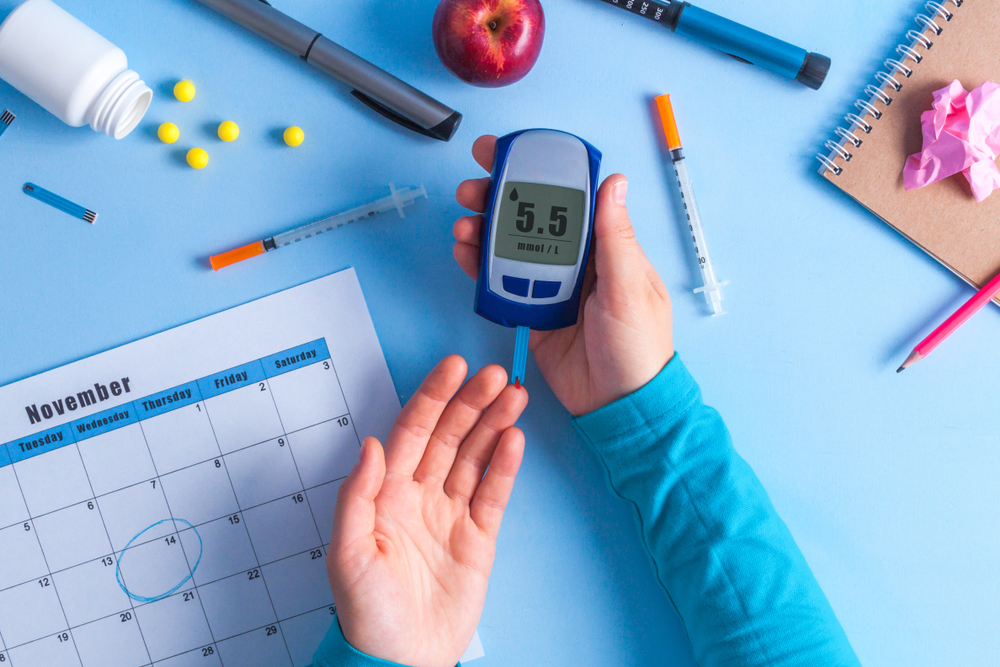Signs of diabetes & ensuring you get checked

Diabetes is a health condition in which your body has difficulty converting glucose (a type of sugar) into energy. This leads to high levels of sugar in the blood (hyperglycaemia).
Your blood glucose levels are normally controlled by a hormone called insulin, which converts glucose into energy. Diabetes occurs when your pancreas can’t produce insulin or when your body can’t make use of the insulin because it’s grown resistant to it.
Different types of diabetes
There are different types of diabetes; type 1 and type 2, as well as gestational diabetes and pre-diabetes.
- Type 1 diabetes is a chronic autoimmune condition usually diagnosed in childhood or adolescence.
- Type 2 diabetes, which typically develops in adulthood, occurs when your body stops responding to insulin, a hormone produced by your pancreas, that helps your cells take in sugar from your blood.
- Gestational diabetes occurs when a woman experiences high blood glucose levels during pregnancy. It usually goes away after the baby is born. Women who experience gestational diabetes have a higher risk of developing type 2 diabetes in the future.
- Pre-diabetes is where blood glucose levels are higher than usual, but not high enough for a diagnosis of diabetes.
Symptoms of diabetes
Diabetes symptoms vary depending on how much your blood sugar is elevated. Some people, especially those with prediabetes or type 2 diabetes, may sometimes not experience symptoms. In type 1 diabetes, symptoms tend to come on quickly and be more severe.
Some of the signs and symptoms of type 1 diabetes and type 2 diabetes are:
- Increased thirst
- Frequent urination
- Extreme hunger
- Unexplained weight loss
- Fatigue
- Irritability
- Blurred vision
- Slow-healing sores
- Frequent infections, such as gum or skin infections
When to see a doctor
Diabetes is serious but can be managed with a combination of medicines and lifestyle changes. Early diagnosis and treatment can also help to reduce the risk of more serious complications. Speak to your doctor if you are experiencing symptoms of diabetes or have concerns about your risk of diabetes.
If you make an appointment with your doctor due to diabetes warning signs, they will want to know:
- your symptoms
- family history
- medications you’re taking
- any allergies you have
There are several tests that can diagnose diabetes. These include:
- A1C: This test shows what your blood glucose level has averaged for the last 2 or 3 months. This does not require you to fast or drink anything.
- Fasting plasma glucose (FPG): You will need to fast for at least 8 hours before this test is done.
- Oral glucose tolerance (OGTT): This test takes 2 to 3 hours. Your blood glucose levels are tested initially and then repeated at intervals for 2 hours after you’ve consumed a specific sweet drink.
- Random plasma glucose test: You can have this test done any time and do not need to be fasting.
If you have any questions or concerns about diabetes, book an appointment with one of our GPs at Junction Road Family Practice to discuss the symptoms, treatment and management of diabetes. Call our Clayfield medical practice on 07 3857 2799, or visit us online here to make an appointment.
